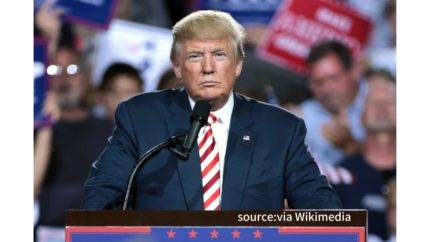In a recent rally in South Carolina, former President Donald Trump sent shockwaves across the globe with his brazen declaration regarding NATO allies and Russia. Trump boldly stated that he would not come to the aid of NATO allies if attacked by Russia, further exacerbating tensions and raising concerns about the stability of international relations.
Trump’s remarks, which bordered on endorsing Russian aggression, garnered swift condemnation from various quarters. His rival for the GOP nomination, Nikki Haley, criticized his stance, cautioning against siding with what she termed as “thugs.” However, support for Donald’s position came from unexpected corners, with Senator Marco Rubio defending the former president’s remarks.
Haley’s Rebuke and Rubio’s Defense: GOP Rift Widens
Nikki Haley’s denouncement of Donald’s NATO stance highlights a growing schism within the Republican Party. While some GOP figures, like Haley, uphold traditional alliances and advocate for a strong defense posture, others, exemplified by Rubio’s support, seem willing to embrace a more isolationist and unpredictable foreign policy.
The rift within the GOP reflects broader debates within the conservative movement about America’s role in the world and the extent to which it should prioritize alliances versus unilateral action. With the 2024 presidential race looming, these differing perspectives on foreign policy could become a defining issue for Republican candidates.
Trump’s Affinity for Authoritarian Leaders: A Troubling Pattern
Trump’s apparent admiration for authoritarian leaders, including Vladimir Putin, raises concerns about his underlying motivations and priorities. His consistent praise for strongmen like Putin, Chinese President Xi Jinping, and others suggests a preference for autocratic rule over democratic principles.
This pattern of behavior underscores Donald’s unorthodox approach to diplomacy and governance, characterized by personal relationships and transactional dealings rather than strategic alliances and institutional frameworks. The implications of such a worldview on America’s global standing and security posture remain deeply troubling.
NATO’s Response: Reaffirming Commitment Amidst Uncertainty
In the face of Trump’s provocative remarks, NATO Secretary General Jens Stoltenberg issued a resolute response, emphasizing the importance of solidarity and collective defense within the alliance. Stoltenberg’s statement reaffirmed NATO’s commitment to defending all member states and underscored the detrimental impact of undermining such alliances on global security.
As the world grapples with geopolitical uncertainty and shifting power dynamics, the need for steadfast leadership and principled diplomacy has never been more critical. Donald’s remarks serve as a stark reminder of the challenges posed by leaders who prioritize personal agendas over the broader interests of the international community.
Trump’s Dangerous Rhetoric Sparks Concerns over NATO Support
In a recent statement, former President Donald Trump stirred controversy by openly distancing himself from and questioning the United States’ support for the North Atlantic Treaty Organization (NATO). His remarks, which have been met with widespread condemnation, have raised serious concerns about the potential consequences for global security.
Trump’s assertion that support for NATO is a “recipe for war” and could lead to a chaotic situation is deeply troubling. NATO, founded in 1949, has long been regarded as a cornerstone of international security and stability, serving as a deterrent against aggression and promoting collective defense among its member states. By casting doubt on the alliance, Trump undermines decades of diplomatic efforts to maintain peace and security in Europe and beyond.
Furthermore, Trump’s suggestion that no “president of a big country” has ever expressed support for NATO to him is not only misleading but also dangerously irresponsible. Numerous presidents, both Republican and Democrat, have reaffirmed the United States’ commitment to NATO and recognized its vital role in preserving global peace. Trump’s attempts to downplay the significance of the alliance only serve to weaken America’s credibility and influence on the world stage.
Global Reaction Highlights Concerns Over Trump’s Remarks
Trump’s latest comments regarding NATO have sparked a flurry of reactions from leaders and analysts around the world, with many expressing alarm over the potential consequences of his rhetoric. European officials, in particular, have been quick to condemn Trump’s statements, emphasizing the importance of solidarity and cooperation within the NATO alliance.
German Chancellor Angela Merkel, a staunch advocate for NATO, reaffirmed her country’s commitment to the alliance, emphasizing its crucial role in safeguarding European security. Similarly, French President Emmanuel Macron warned against undermining NATO’s collective defense principles, stressing the need for unity in the face of emerging security threats.
Beyond Europe, leaders from across the globe have also voiced their concerns over Trump’s remarks. Canadian Prime Minister Justin Trudeau reiterated his country’s unwavering support for NATO, highlighting its role in promoting peace and stability in North America and beyond. Meanwhile, officials from NATO’s partner countries, including Japan and Australia, have underscored the importance of a strong transatlantic alliance in addressing shared security challenges.
As the international community grapples with ongoing geopolitical tensions and security threats, Trump’s divisive rhetoric on NATO only serves to exacerbate uncertainty and instability. Moving forward, it will be essential for world leaders to reaffirm their commitment to collective security and uphold the principles of the NATO alliance in order to safeguard global peace and stability
Table of Contents
Discover more from OGM News NG
Subscribe to get the latest posts sent to your email.














